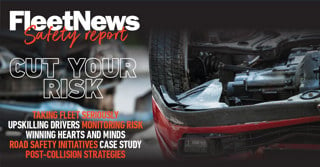Councils and local authorities are facing a ‘mileage minefield’ as attempts to cut reimbursement rates falter in the face of resistance from unions and employees.
Every council in the country is under pressure to find ways to reduce costs amid Government budget cuts and mileage rates have long been highlighted as a source of potential savings, particularly when it comes to employees’ own cars being used on council business.
In 2011, a report from pressure group The Taxpayers Alliance revealed that mileage allowances were costing councils an estimated £427 million a year.
It claimed the average rate paid out by councils across the UK was 56.4p per mile in 2010-11 – well above the HMRC-approved level of 45ppm – meaning that a typical council worker would have ended up more than £100 better off for every 1,000 miles driven.
A small reduction in spending could generate millions of pounds in savings every year, but that requires hundreds of individual negotiations, as every council seems to have its own unique arrangements with staff, covering lump sum payments, pence per mile and tiered rates.
There is a nationally-agreed mileage rate for council workers that can be used.
The top rate for essential car users stands at 50.5ppm for the first 8,500 miles and up to 65ppm for casual users, with other rates available depending on engine size.
Many councils have also opted for the official HMRC rates that are used in the private sector, where drivers can claim 45ppm for the first 10,000 business miles and 25ppm thereafter for employees using their own car on company business.
But for unions and many employees, any reduction in the mileage rate, sometimes combined with removal of a lump sum car allowance payment, is unacceptable.
Unison has claimed that HMRC rates do not reflect the real cost of providing a car for work with a spokesman saying: “In 2011, HMRC increased by 5p to its current rate of 45ppm, but Unison’s technical advisor believes that this is still too low given the increases in petrol prices over the last few years.”
Currently, just under half of local authorities are thought to be paying ‘inadequate’ HMRC rates, with many more trying to follow.
The result has been widespread disputes, disruption and the threat of strike action.
The GMB recently told its shop stewards at local authorities not to negotiate with employers over mileage rates for employee-owned vehicles.
A spokesman said: “In many circumstances, the rate would not cover the cost of miles travelled.”
A long-running row at Northumberland County Council over attempts to reduce mileage allowances ended this month with the council admitting defeat after it was faced with strike action.
Author
John Maslen

















Login to comment
Comments
No comments have been made yet.